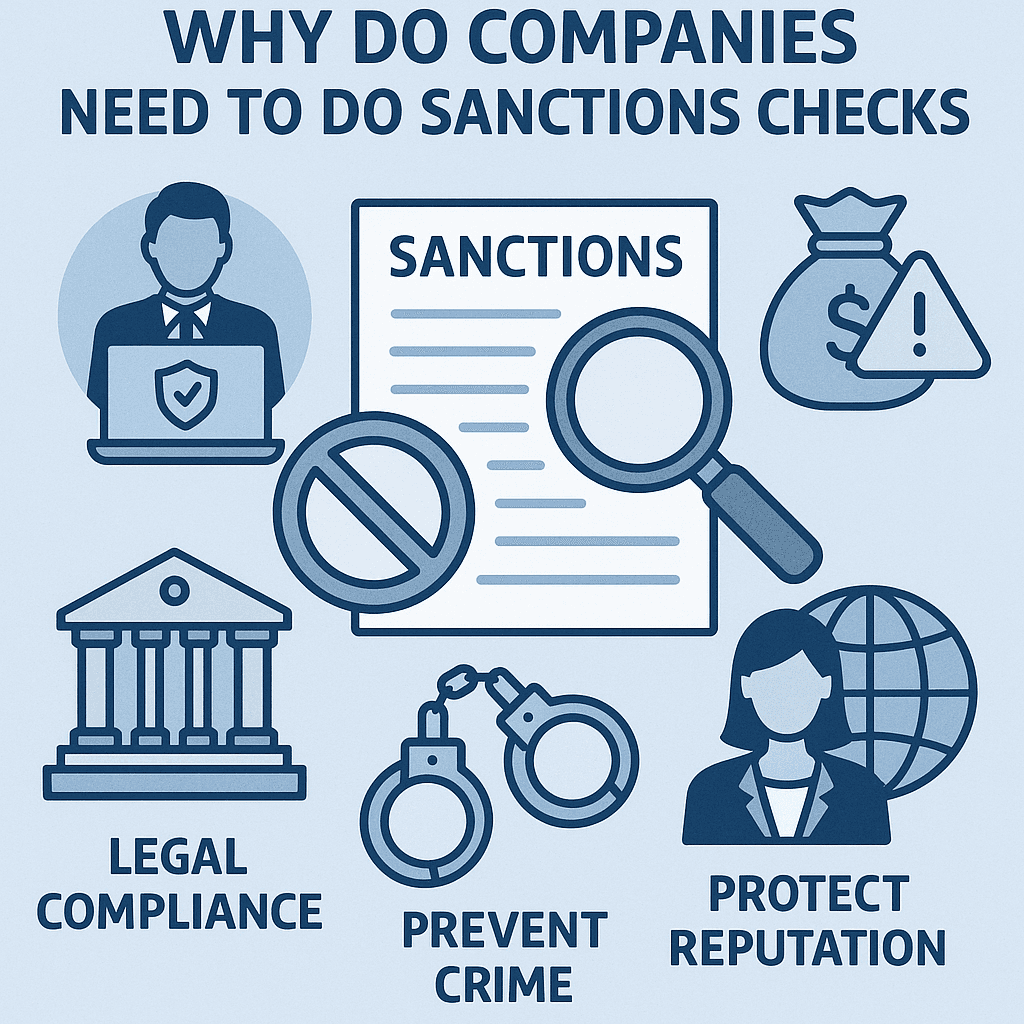10 Aug 2025
When to Use Which Sanctions Checks
Not all sanctions checks serve the same purpose. This guide helps compliance teams decide the right type of screening for onboarding, ongoing monitoring, and special investigations.

Choosing the right type of sanctions check can make the difference between a compliant, efficient process and one that’s risky, costly, or ineffective.
1. Onboarding New Customers or Vendors
When first engaging with a new client, supplier, or partner, a comprehensive (full list) check is the safest approach.
This ensures the subject is screened against all relevant sanctions lists, even if you operate in only one jurisdiction.
Pro Tip: Combine with PEP (Politically Exposed Person) screening during onboarding.
2. Ongoing Monitoring
For customers and partners you already work with, real-time or periodic rescreening keeps your database compliant as sanctions lists change.
If regulations in your sector change often (e.g., fintech, crypto, trade), real-time monitoring is strongly recommended.
3. Jurisdiction-Specific Operations
If your business operates exclusively in a certain jurisdiction, targeted checks can help cut down false positives.
For example, an EU-only business might focus on EU Consolidated Lists.
⚠️ Ensure you still comply with any cross-border sanctions obligations if you have foreign clients.
4. Large Data Imports
When migrating data or onboarding a large group at once, batch screening via CSV upload or API is efficient.
This is also ideal for periodic "whole book" reviews.
5. Investigations and One-Off Checks
If you receive a suspicious payment or need to screen a one-time supplier, ad-hoc/manual checks are appropriate.
These are quick, targeted lookups without affecting your entire customer base.
Summary Table
| Scenario | Recommended Check Type |
|---|---|
| Onboarding | Comprehensive check |
| Ongoing monitoring | Real-time / periodic |
| Single jurisdiction | Targeted checks |
| Data migration | Batch screening |
| Special investigation | Ad-hoc/manual |
Using the right type of sanctions check for the right scenario improves compliance accuracy, reduces noise, and optimizes operational costs.
Related reading

Why Do Companies Need to Do Sanctions Checks?
Sanctions checks are essential for businesses to avoid legal, financial, and reputational risks. Learn why they matter, the risks of non-compliance, and best practices for implementation.

Key Global Sanctions Lists SMEs Should Be Screening Against
Learn which sanctions lists matter most for small and medium-sized enterprises, and how to choose the right ones based on your business operations and risk profile.
